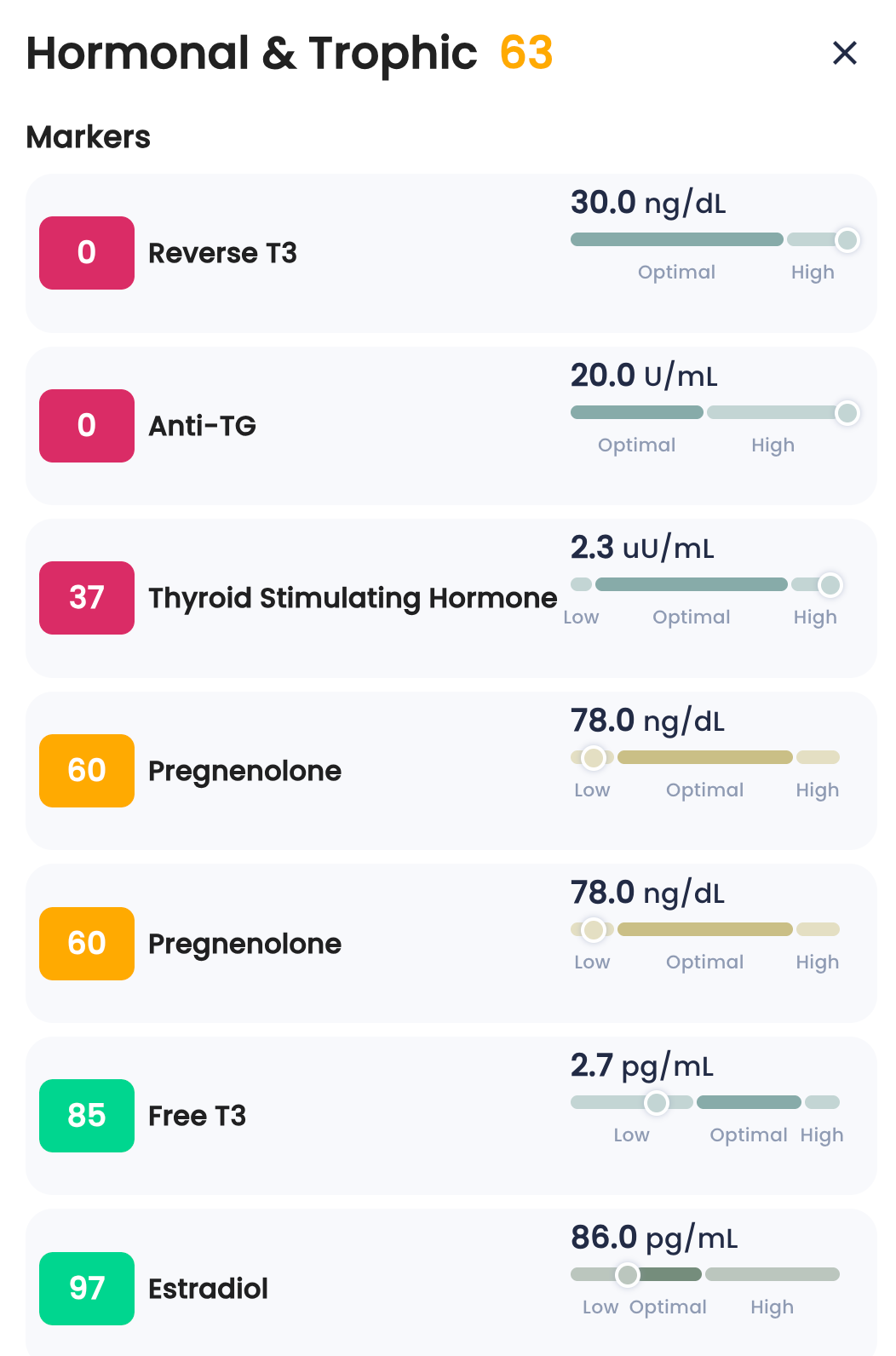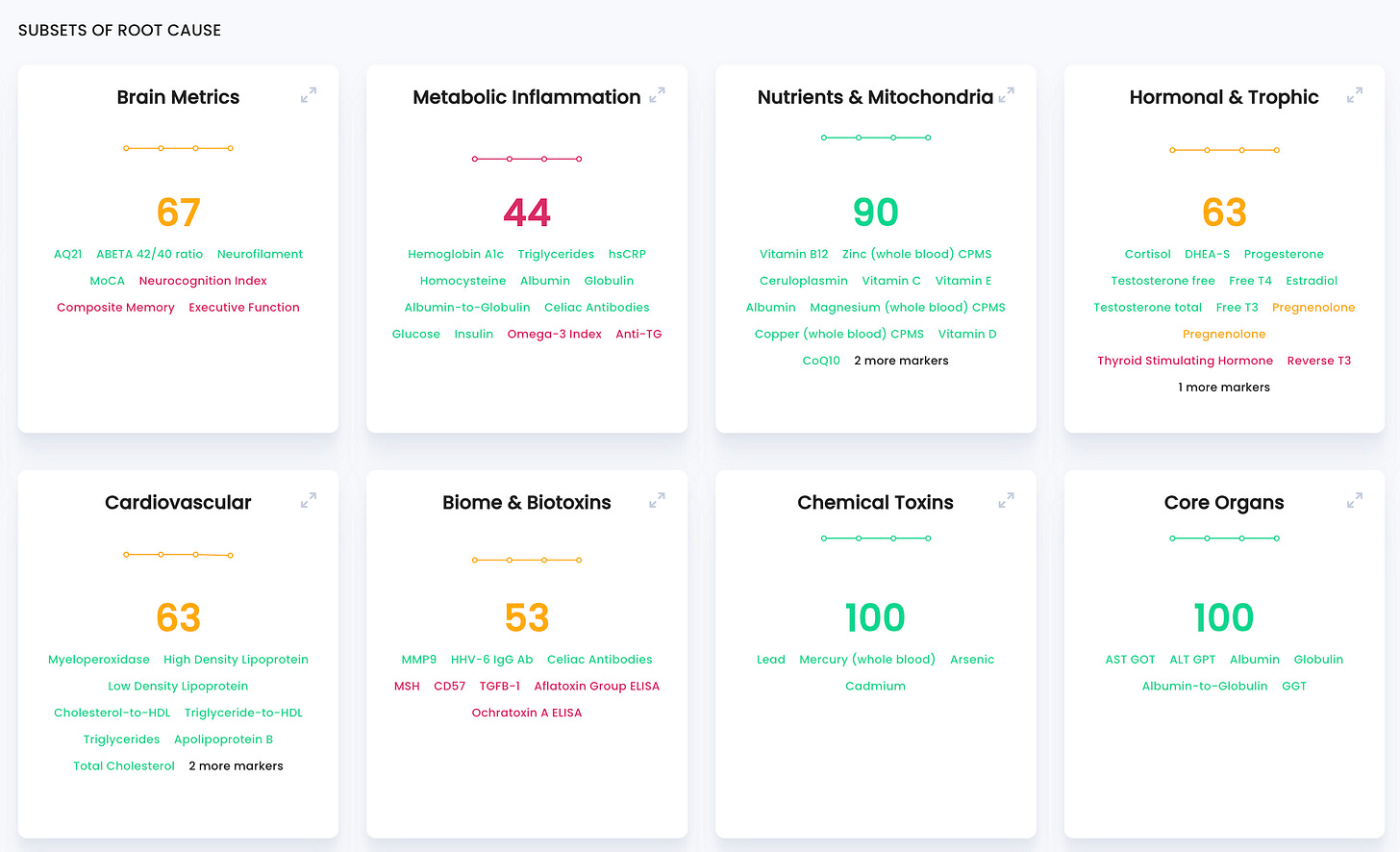The Surprising Reason Why Functional Medicine Hasn’t Gone Mainstream
It's too damn complicated.
Everywhere you look, there’s a new company promising to revolutionize healthcare by making it easier to access and interpret blood work. Platforms like Hone Health, Function Health, and countless others offer direct-to-consumer testing, allowing patients to track biomarkers that were once only accessible through a doctor’s office.
Blood work is at the heart of medical decision-making—it’s the single most widely used tool to determine a person’s health status, upwards of 80%. Yet, despite all these new testing services, functional medicine hasn’t gone mainstream.
With all this data available, why aren’t we seeing a mass shift toward personalized, functional, and root-cause-based medicine?
The answer is simple: it’s too complicated.
The Complexity Problem
Here’s the truth: more data doesn’t mean better healthcare.
Every biomarker has its own units, reference ranges, optimal zones, and nuances. Some values should go up; others should go down. Some markers have clear-cut optimal ranges; others are context-dependent. Even the same marker can mean different things in different populations and every functional medicine doctor seems to have their own opinion.
For example:
Ferritin levels that might indicate iron sufficiency in one patient could point to inflammation or even liver disease in another.
Homocysteine is useful in cardiovascular and brain health, but whether it’s a problem depends on genetics, methylation status, and other markers.
Inflammation is considered a “bad thing” but can increase with “good things” like exercise
Even doctors trained in functional medicine spend years learning how to interpret lab data in a way that leads to meaningful action. And for patients? Forget it—expecting them to navigate this complexity is completely unrealistic.
This is why self directed lab marker education has been largely limited to biohackers—people who are willing to spend thousands of hours researching their own labs, running self-experiments, and figuring out what works. That’s fine for a niche community, but if we want millions of people to benefit from functional and precision medicine, we need a better system.
That system is scoring.
The Solution: Turning Data Into Actionable Scores
The key to making functional medicine accessible to everyone isn’t more data—it’s better interpretation.
Imagine you walk into your doctor’s office and instead of seeing a jumble of numbers with strange abbreviations, you see a simple score for each biomarker.
100 = Optimal
0 = Severe concern
No need to memorize reference ranges, no need to Google whether a high or low value is better—just one clear score per biomarker that shows whether you’re in the green zone (healthy), yellow zone (borderline), or red zone (urgent issue).
Take Hemoglobin A1c as an example:
5.0% is optimal → Score: 100
6.5% (pre-diabetes) lowers your score → Score: <30
8.0% (full-blown diabetes) is a major problem → Score: 0
This type of scoring system immediately removes the confusion of lab testing. Instead of wondering whether “5.2%” is good or bad, you just look at the score and know if you’re on track or not.
But the real power of scoring goes beyond individual markers—it allows us to combine biomarkers into higher-level clinical insights.
The Power of Combined Scores
Once we establish a scoring system for individual markers, we can group related markers like lego bricks into clinically meaningful categories.
For example, our Metabolic Inflammation score combines:
Hemoglobin A1c (blood sugar control)
Fasting insulin (early-stage metabolic dysfunction)
Triglyceride-to-HDL ratio (cardiovascular risk)
CRP (inflammatory burden)
This gives both doctors and patients an instant snapshot of metabolic health—without requiring them to decipher multiple complex lab values.
Similarly, a sample “brain health score” could integrate:
Homocysteine (methylation and neurovascular risk)
Omega-3 Index (brain structure and function)
Blood sugar markers (insulin resistance’s role in neurodegeneration)
Inflammatory markers (CRP, cytokines)
Heavy metal toxicity (lead, mercury exposure)
By presenting easy-to-understand scores instead of raw lab values, we empower both patients and doctors to quickly understand where the biggest risks are—and what steps need to be taken next.
TruNeura: Making Functional Medicine Mainstream
At TruNeura, we’ve built the first scoring-driven platform for functional medicine.
Our system takes in 450 biomarkers and translates them into a simple, structured, and clinically meaningful format.
Why This Matters
It saves time for doctors.
Instead of sorting through dozens of PDFs and manually piecing together patterns, practitioners can instantly see where the biggest issues are.
It removes confusion for patients.
No more staring at lab reports wondering what “low ferritin” or “high CRP” means. Just one clear score per biomarker and per pillar of health—and easy-to-follow recommendations for improvement.
Our scoring system gives you a clear priority of how to address root causes, starting with the lowest combined score.
It enables real participation.
Functional medicine is all about patient empowerment. But how can patients take control of their health if they don’t understand their lab results?
A scoring system makes it easy for patients to track progress over time—seeing improvements in real-time rather than feeling lost in a sea of numbers.
It creates a scalable system for functional medicine.
Right now, functional medicine remains difficult to scale because it relies so heavily on individual interpretation.
TruNeura standardizes that interpretation—allowing clinics to train new new provders and coaches faster, provide consistent care, and expand functional medicine access while increasing quality.
The Future of Functional Medicine is Simplicity
The reason functional medicine hasn’t gone mainstream isn’t because it doesn’t work—it’s because it’s too complex for the average person to engage with.
We’ve spent decades building incredible knowledge about how to treat chronic disease at its root. But we’ve failed to package that knowledge in a way that’s simple, scalable, and actionable for both doctors and patients.
Scoring is the solution.
It bridges the gap between raw lab data and real-world decision-making. It makes functional medicine easy—without sacrificing its depth or effectiveness. Furthermore, it’s laying a perfect foundation to a truly meaningful use case for Artificial Intelligence.
And at TruNeura, we’re leading this transformation.
If you’re ready to bring functional medicine into the mainstream—by making lab testing, patient tracking, and root-cause medicine accessible to everyone—it starts with scoring.
The question is: Are you ready to stop processing data and start taking action?




🤔🤔 Curious as to where the biomarker panel is for emotional health?🤨 Or is the GAD-7 in another section?😉
As a former biohacker, before it had a fancy name, I can assure you that all the swish metrics and data, does not = wellness, rarely does it even equal health in the long term.
The pretty dashboard will make it quicker for doctors/health practitioners- will it make them better? 🤞🤞🤞
As for the individuals, it will definitely be a more understandable set of data. Does that equate to better holistic outcomes? I think the wearable tech and app graveyards will attest that the elusive self responsibility and commitment still make up the bulk of success rate. Grit trumps tech.
But I can definitely see your application being very popular in the near future, particularly with the telemedicine crew, it allows for speed, and hopefully accuracy and privacy😉🤨
"...more data doesn’t mean better healthcare." Agree. And AI can either compound the problem or offer solutions. Scoring sounds like a useful process.
Medicine has many faces (i.e. FM, Environmental Medicine, TCM and acupuncture, homeopathy, herbology, bioenergetics, naturopathy, even allopathy, etc). Patients would be well served by a triage system that guides them in understandung and finding what fits their illness, beliefs, and circumstances best. Perhaps AI will be able to help with this too.